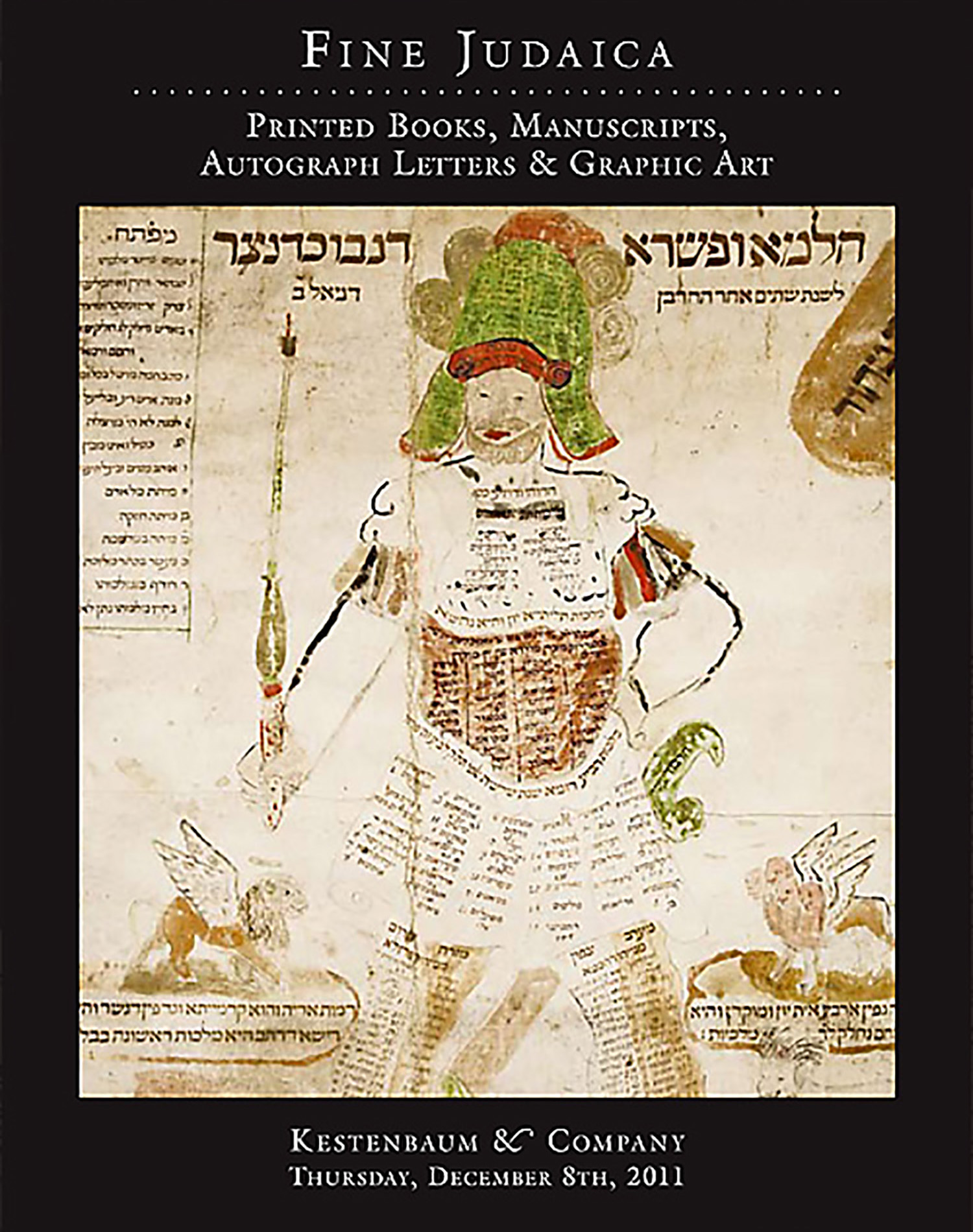Vaad Harabanim - Assembly of Orthodox Rabbis. Ledger recording meetings held during the Depression and Prohibition era.

AUCTION 53 |
Thursday, December 08th,
2011 at 1:00
Fine Judaica: Printed Books, Manuscripts Autograph Letters & Graphic Art
Lot 256
(AMERICAN JUDAICA)
Vaad Harabanim - Assembly of Orthodox Rabbis. Ledger recording meetings held during the Depression and Prohibition era.
New York: 1930-33
Est: $3,000 - $5,000
PRICE REALIZED $3,000
The Vaad Harabonim Rabbinical organization in New York, played a pivotal role over the many religious and social issues facing American Jewry. This volume is an important source document for the study of the inter-relationship and influence of the Rabbinical organizations that were established during this volatile period of American Jewish history.
Among a multiplicity of issues, discussions here include: Support and alleviation of problems of various Yeshivoth and Talmud Torahs, such as: Yeshiva Rabbi Yitzchak Elchanan; Yeshiva Rabbi Shlomo Kluger; Rabbi Jacob Joseph (lengthy discussions of conflicts between the Board of Directors and teachers resulting in the closure of the school during the Asereth Yemei Teshuvah); Yeshiva Torath Emeth; the travails of Yeshiva R. Hirsch Leib Berlin (Netziv); Yeshiva Tifereth Jerusalem, and others.
Among other issues discussed: Pay-scales for rabbis; scandals concerning "reverends" performing shot-gun conversions; problems concerning Kashruth supervision and related Sabbath desecration; negotiations to permit the provision of kosher food in New York City hospitals; the relationship of the Vaad with Prohibition administrators in Washington; the issuance of a calendar based upon communication with the Naval Observatory; the building of hygienic Mikvahs; inter-rabbinical intrigues, etc.
As opposed to the Agudath HaRabonim, the focus of the Vaad HaRabonim was more New York specific, seeking to asssist particular local community need. In its early years members of committees included prominent rabbis and faculty of Yeshivoth such as Rabbi Yitzchak Elchanan, Chaim Berlin and Torah Vodaath. The Vaad's administrator was Rabbi B. Faivelson and the presidium was composed of Israel Dushewitz, Chaim Epstein and B. Aranowitz. Other leading figures cited in this record-book include: Rabbis Barishansky, Charlap, Karlinsky, Chinitz, Predmesky, Fleischer, M.A. Kaplan, Tomashov, Lokshin, Pam, Dachowitz, Orenstein, Baumol, Moshe Soloveitchik and others.
Also included are synopses of many rabbis' speeches including a lengthy lecture delivered to the organization by Rabbi J. B. Soloveitchik prior to his accepting a rabbinical position in 1933.
